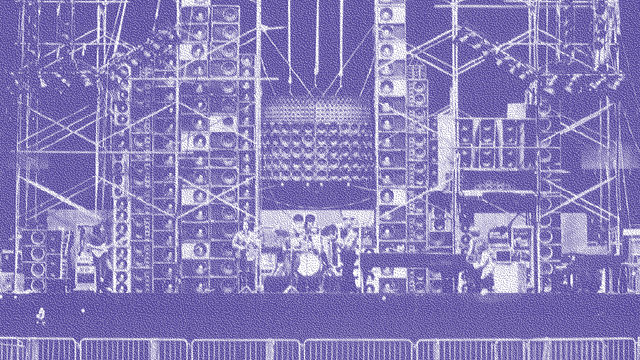
Omniaudience (Off-site)
- to This is a past program
Coaxial Arts, 1815 S. Main St.
This program is organized as part of Triple Canopy's Public Engagement residency at the Hammer Museum, which revolves around gatherings comprised of listening sessions, conversations, and performances at the Hammer and partner institutions.
Lynnée Denise presents a multimedia essay that employs recordings of interviews and performances to portray the experiences of black artists in the music industry, which she identifies as an economic institution that emerges from chattel slavery. Denise asks how the pervasive narratives of fame, addiction, and financial exploitation minimize the ability of black artists to benefit from their labor and intellectual property.
Harmony Holiday listens with the audience to neglected musical recordings that manifest traditions of collective improvisation and diasporic gathering.
Participant Bios
Lynnée Denise is an artist, scholar, and producer whose work reflects on underground cultural movements, the 1980s, migration studies, theories of escape, and electronic music of the African diaspora. Denise understands DJing as a research method and strategy for employing music to foster public dialogue; she coined the phrase “DJ scholarship” to shift the role of the DJ from a party purveyor to an archivist and cultural custodian of music with critical value. Her writing has been published by the Los Angeles Review of Books, the Black Scholar Journal, the Journal of Popular Music Studies, and in anthologies including Women Who Rock and Outside the XY: Queer, Black, and Brown Masculinity. She has produced conferences on Michael Jackson with the New York Public Library’s Schomburg Center for Research in Black Culture, on Prince with the Los Angeles Public Library, and on Aretha Franklin with UCLA’s Department of African American Studies.
Harmony Holiday is a writer, dancer, and archivist. She’s the author of Hollywood Forever (Fence Books, 2016); Go Find Your Father/A Famous Blues (Ricochet Editions, 2014); Negro League Baseball (Fence Books, 2011); and The Black Saint and the Sinnerman, an LP composed of sound and speech that assimilates Charles Mingus’s classic 1963 album. She runs Afrosonics, an archive of jazz and everyday diaspora poetics, and Mythscience, an imprint that reissues work from the archive. She is currently working on a book of poems called M a a f a and an accompanying collection of essays and memoirs, Reparations: Thieves Who Stole My Blue Days, as well as a biography of the jazz singer Abbey Lincoln.






